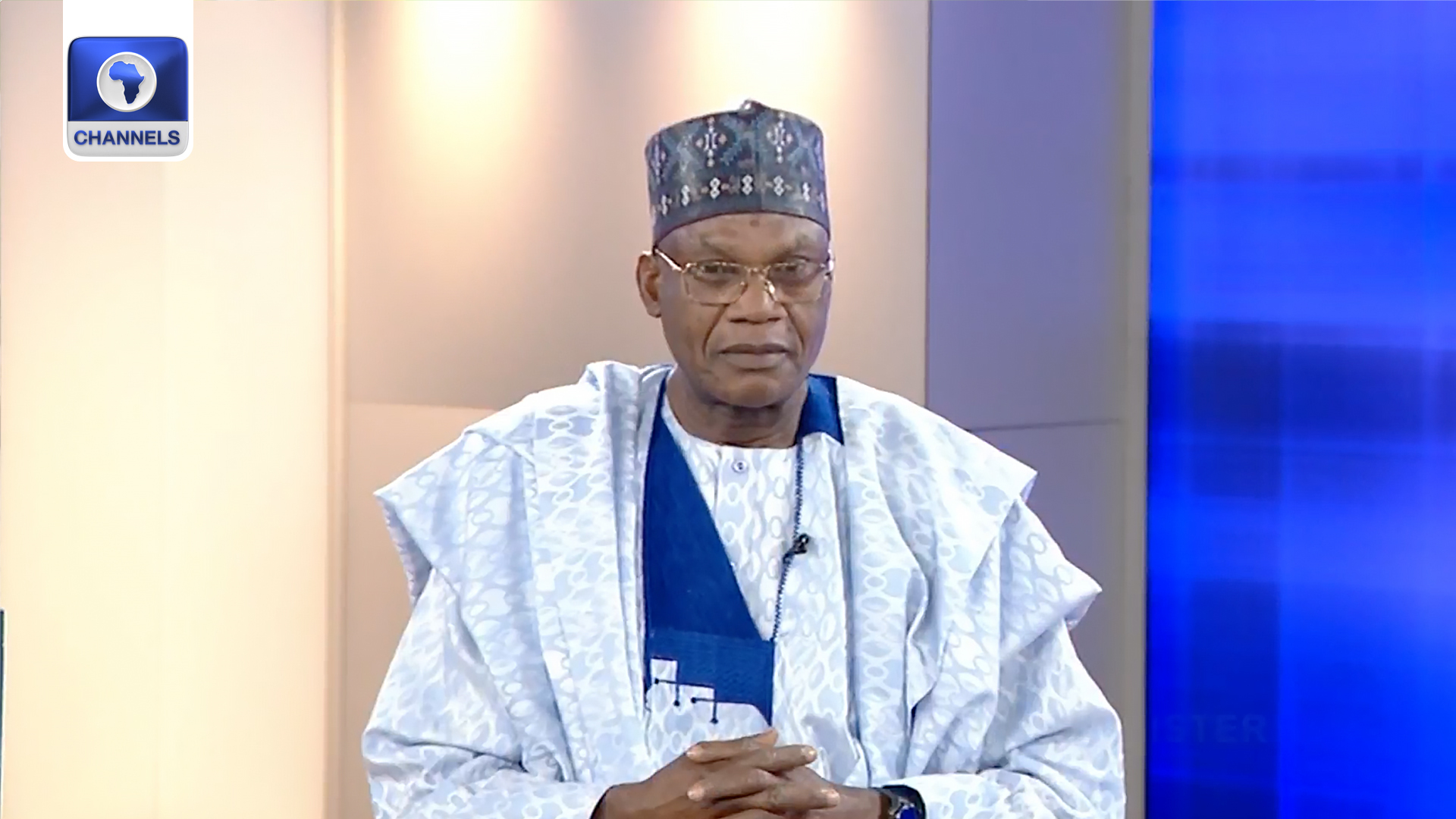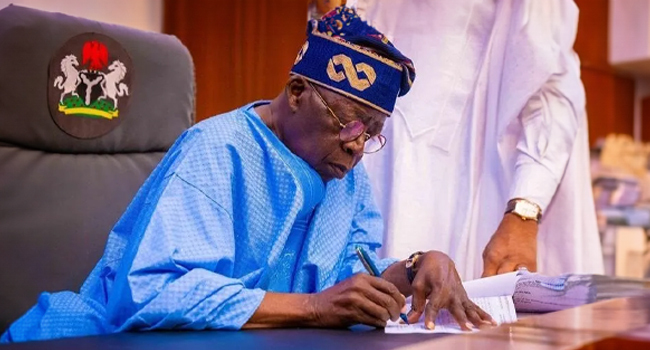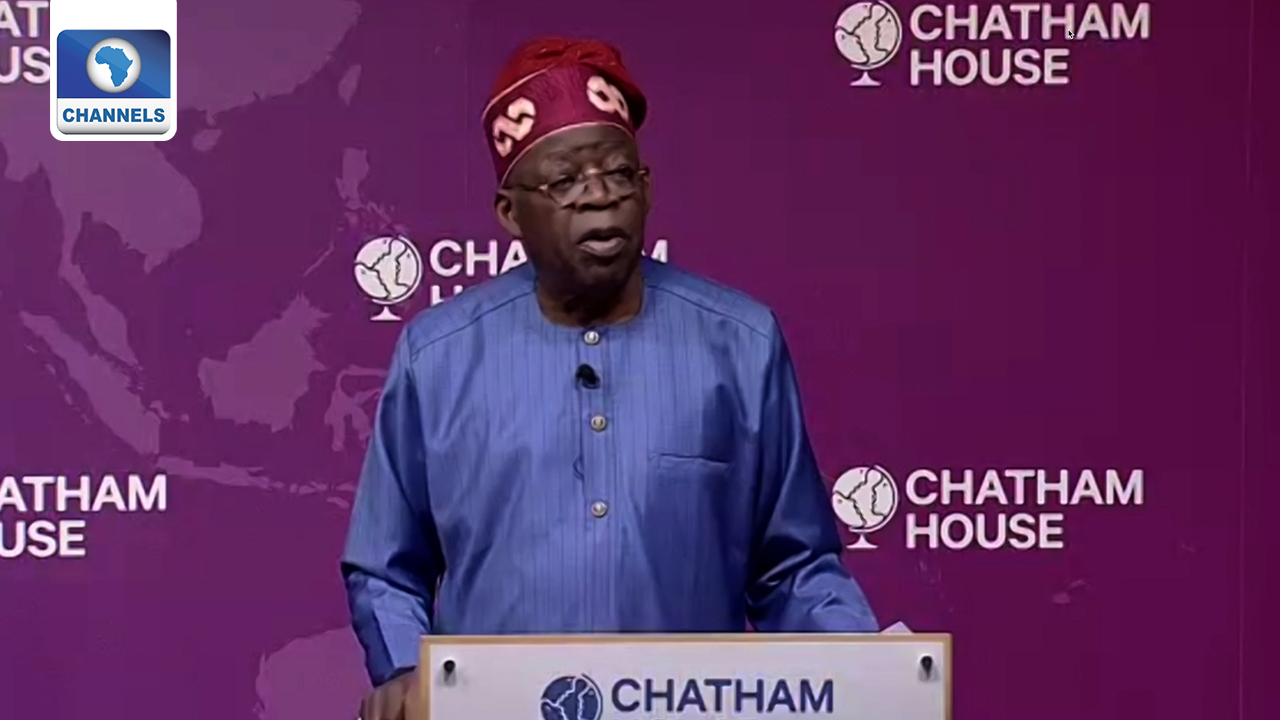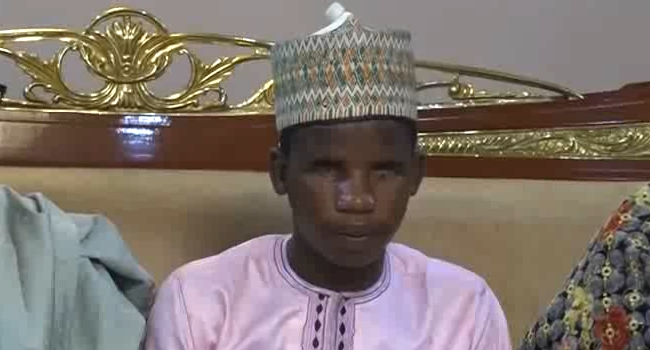The Minister of Education, Prof Tahir Mamman, was recently on Channels Television’s Politics Today programme where he shared his perspectives on how the nation’s education sector can be developed and the blueprint of the President Bola Tinubu administration to stimulate and sustain the growth of the sector.
Enjoy the excerpts of the interview!
Let’s begin with the number of out-of-school children, 10.5 million of them, that is the UNESCO figure. How much has this government been able to take out of the streets?
Well, I don’t want to go into the issue of figures, whether it’s 10.2 or less or more, but the fact is that we have millions of Nigerians who are supposed to be in school and who are not in school at this point in time and we are addressing that. We have four anchor pillars we have come up with.
What we’ve been able to do in the last six months since we came on board is to enrol up to two million plus out-of-school children through a number of agencies in the ministry.
In fact, we have an agency set up specifically for that purpose, to take care of Almajiri and out-of-school children. It’s yet to take off fully because we are still waiting for waivers from the Head of Service, recruitment and even secretariat and so there are still some headwinds in terms of the take-off of that agency, but we have not been resting.
I liken out-of-school children to a pool of water and if you clear that pool of water and then you are not able to close the tap which is actually feeding that pool then you are not solving the problem. So, we are working on a two-track policy of addressing out-of-school children and then trying to close that gap.
When you look at the statistics and the Almajiri system, the disparity you see in Northern Nigeria is actually staggering in terms of educational development in this country. Some past governors and leaders in the region had agitated saying that there is a major challenge that needs to be fixed in northern Nigeria. Some governors said they want to scrap it. There was a lot of effort under the Jonathan Government. What has happened to that system?
Well, I am again not going to go into what the governors will do or not do because they are entitled to adopt policies within their states but one thing is certain. It’s quite possible to have the two systems integrated and to me, that’s the best way to go and we are having conversations with the governors and I think soon, we are going to engage them because secondary education, almost 90% actually is within the domain of states and local governments.
The Federal Government has only the unity schools and some of the technical colleges. But for two reasons, because of the acknowledged problems in that sector in the basic education and secondary school level, the problems have come back to the federal government, and then secondly, the federal government has a responsibility to ensure that minimum standards are met in the delivery of education at all the levels. We have a crisis at hand and it’s a national crisis, the federal government cannot just wash off its hands and say this is a state matter.
READ ALSO: [Salary Arrears] FG Considers Half Pay For SSANU, NASU Members
As a minister, would you be proposing a scrap of the Almajiri system?
I won’t.
You want it to be merged?
It’s possible.
Because there are a lot of downsides to the Almajiri system, torture, and force.
No, what I’m focusing on is the education.
There are those who criticise how education is being delivered.
That can be reformed because this is a new generation age, we are at an age where there’s information. People can know everything that is happening around them and I tell you even in those places that they have been able to integrate them successfully, you could see the value of it. Children come up with good, sound moral values embedded in their Western education. So, really there’s no conflict between the two of them if they are properly integrated and implemented.
These children still have bows in their hands, moving on the street, hoping they will return to the educational system but they never return because they are used to begging. Some people think it is not working.
No, where you have a successful integration, those things will not happen because those children will be fed. There will be provision for water sanitation where they are and then even those who teach them, the mallams and the teachers who teach them, they also benefit.
Is there a curriculum for it?
This is where the standardisation comes in. Once that one is done successfully, then all these ones will be out of the window.
Did you meet the system put in place by the Jonathan Government?
No, I didn’t meet it.
So, it died naturally with the Buhari Government?
Well, what we have are the physical structures here and there and that’s what we are using. We’re going to set out to use them.
But it is not in existence any longer, philosophically and ideologically despite the fanfare about it.
To my understanding, there are some states actually where they exist like Borno, for instance, and one or two other states. They’ve been able to have that system in a more refined and integrated way.
The school feeding programme was one programmes that was created to also help to lure the children to school but with what is happening with the Humanitarian Affairs Ministry? Is the school feeding programme still active?
Well, it is not active. The President has suspended it together with some of those policies that came with that programme, we are still waiting for the final decision on it anyway, but I remember his statement that it will be reverted to the Ministry of Education where in the first place it should have been.
So, whether the committee will recommend for that policy to be formalised or not, that’s another matter. So, we are waiting for that decision but it’s a fantastic policy, it’s been shown all over the world to have worked to strengthen enrolment orientation and completion of schools.
If you have your way, you want it to be reintegrated.
Yes, it works.
What do the statistics tell you about the impact of the school feeding programme?
Fantastic, it’s great, it worked, it was the reason for students to come back to school or remain in school; it’s a very laudable policy and the President has said he wants that policy in place because it serves a huge purpose in keeping the students in school. Even for a lot of parents, it makes a lot of economic sense and then for the country, it’s a major driver for enrolment and for them to continue with their education.
Under the Buhari Government, lecturers were at home for eight months over certain issues. Has that been totally dealt with?
The issue is settled in relation to academic staff but there are still issues outstanding in relation to non-academic and technical staff, so the government is looking into that.
They have blamed the Federal Government for it. SSANU and NASU said their salary arrears were approved by President Tinubu alongside their academic colleagues but they have not been paid and they’ve gone on a warning strike, and nothing has been done.
SSANU and NASU know they have my sympathy in terms of getting what is due to them. They know that we are doing everything possible to get a relief for them.
What is delaying their emolument? Has it been approved anyway?
No, it has not been approved.
But they feel that it has been approved?
No. Remember there is a court judgment on no work, no pay. So, ASUU getting four months’ pay was actually a discretion, it’s a discretional decision on the part of the president and so it doesn’t automatically transfer to NASU and SSANU but the matter is already under consideration. We are on a positive progression on this matter.
When do you think that can be sorted out?
I don’t think it’s safe to put a time on it, it’s safer to say we are on it, and we are pushing. In any case, the non-academic staff were not on strike for the same period with the academic staff. So, if they are getting payments, it’s going to be half of that if the President will follow his precedent with the academic staff.
They feel that the government of the day rates the academic staff more than the non-academic staff.
That cannot be right and there’s no rating, I mean these are people who are doing within the same terrain, every person is just doing something different, but they are all working towards the same goal. I believe what happened was a communication problem initially that was what led to this, it wasn’t a deliberate measure to exclude them from that benefit, it wasn’t.
Prof, can we say for sure that under this government, the era of ASUU strike is over?
That’s our hope and we’re working on it. That’s our hope with the unions and that’s our understanding also with them and since the President has expressly stated that one of his desires is the education sector; that teachers, children can be in school uninterrupted. We can have some order in the education sector where people can come to Nigeria on sabbatical and there’s stability, some planning. You know, any time there’s strike and instability, there’s really no planning in that system and you have students instead of graduating three, four years taking six, seven years and so the President is very serious about his desire to have stability.
We’ve had a number of interactions with the unions and of course we share with them their aspirations for the education sector, particularly the tertiary education. It’s just that sometimes unions have some lack of understanding of what’s possible and what’s not possible at a particular point in time which those of us in government have but we are committed to doing everything possible to support the system. You can see from the budget of the ministry in 2024, how the budget went up significantly. This government is committed to turning the education sector around.
How far do you hope that you can take the education sector?
We are taking education to the level that this country desires. Education is at the centre of everything that we have to achieve in this country.
Under the Child Rights Act, there is a fundamental right of every child to education. Under the Universal Basic Education, there is the duty and the role of parents to ensure that every child gets a basic education.
There’s no spirit of inquiry and critical thinking, so that’s why we are at the stage the development partners call a learning crisis because our students and people don’t have the kind of knowledge, they are supposed to have at the level that they are and don’t mind. That’s a disaster.
So, we have a learning crisis in this country?
We have a learning crisis. That’s what we are addressing now. We have decided to bring back skills and values back to schools, from primary schools, right through the entire education sector. Skills digitisation and then those values we have also mentioned, you know cultural norms.
Are you bringing back history?
It’s already back, history has been brought back a long time.
Compulsory or optional?
It’s optional, not compulsory.
I know that the National Universities Commission (NUC) has implemented a change in the curriculum in our universities. Is it reflective of some of these things that you’ve talked about?
It does contain some of them.
Some of our curriculum is as old as 45 years and they have not been changed but we understand now there is a change of curriculum.
There’s a change, a lot of radical changes in terms of entrepreneurship and sort of innovation and technology, all brought into it now. So, what we are doing now is to take the whole thing back to the primary school stage and we already developed a national skills framework.
The ministry has already developed it. We are working with some development partners to develop skills which are needed for all those levels and then thirdly only recently to the National Council on Skills was inaugurated and is going to drive these programmes in two ways; one skills in the informal sector for out-of-school training and empowerment and then skills also in the formal education sector. Remember at some point it was also introduced for those who went to the university of recent but it has not been effective.
That takes me to the authenticity of some certificates. There is a crisis of fake certificates flying here and there. I understand that the report is in the works, when will the report be ready?
I understand they are about to submit the report. The committee has completed and is doing the editing work, so very soon we will have it.
How bad is this issue of fake institutions?
I cannot comment on it yet because the report is not yet before me, but it appears there is a problem.
I know that the government made a policy on some West African universities. Has there been a review and what exactly is that disposition of government today?
There’s no review until the report is in.
But there was an initial policy about the non-acceptance of some certificates.
On the non-acceptance of certain certificates in some West African countries, that policy is still on the ground.
Which are these countries?
Togo, and about two or three of them, I can’t remember exactly now until this report is out.




